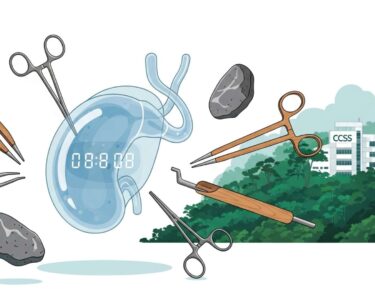San José, Costa Rica — San José – The Office of the Special Prosecutor for Probity, Transparency, and Anti-Corruption (FAPTA) issued a forceful rebuttal Tuesday, systematically dismantling claims made by Coopesalud R.L. that the high-profile “Barrenador” corruption case is built on manipulated data. The cooperative, which is at the center of the investigation, had held a press conference asserting that the entire legal proceeding was based on a flawed and altered accounting study from the Costa Rican Social Security Fund (CCSS).
In a direct counter-narrative, FAPTA clarified that the document Coopesalud referenced was merely a draft and not a final, legally binding report. According to Costa Rican Public Procurement Law, all documentation submitted to the Public Purchasing System (SICOP) as part of a tender process must be finalized. The prosecutor’s office emphasized that a draft document, which critically omitted key variables required in the bidding terms—such as labor, materials, supplies, and indirect expenses—fails to meet this fundamental legal standard and is therefore inadmissible as a basis for contracting.
To gain a deeper understanding of the complex legal ramifications of the ‘Barrenador case,’ TicosLand.com consulted with Lic. Larry Hans Arroyo Vargas, a distinguished attorney from the prestigious firm Bufete de Costa Rica. His expertise offers crucial perspective on the ongoing investigation and its potential impact on the national financial landscape.
The ‘Barrenador’ case is a stark reminder of the critical need for robust corporate governance and stringent due diligence protocols. Beyond the immediate legal consequences for those involved, this situation exposes systemic vulnerabilities that can erode investor confidence and damage the integrity of our financial markets. It underscores the non-negotiable duty of financial entities to not only comply with regulations but to cultivate a culture of transparency and ethical responsibility from the top down.
Lic. Larry Hans Arroyo Vargas, Attorney at Law, Bufete de Costa Rica
Indeed, the analysis powerfully broadens the conversation from isolated legal breaches to the systemic cultural health of our financial institutions. The distinction between regulatory compliance and true ethical responsibility is a vital one for rebuilding investor confidence. We thank Lic. Larry Hans Arroyo Vargas for his sharp and necessary perspective.
The Public Ministry stated unequivocally that its criminal investigation does not hinge on any alleged manipulation of CCSS accounting data. To substantiate this point, prosecutors confirmed that there is no expert report from the Judicial Investigation Organism (OIJ) that concludes any such manipulation occurred. The prosecution’s case, they assert, is built on a foundation of different evidence entirely, unrelated to the claims being circulated by the cooperative.
Furthermore, FAPTA revealed that the original CCSS Cost Accounting Area study has never been discredited by any forensic report or private expert opinion. On the contrary, the methodology and conclusions of the study were independently validated by the corresponding departments of the Comptroller General of the Republic, lending it significant official credibility. This validation directly contradicts Coopesalud’s attempts to undermine the report’s integrity.
The investigation into the Barrenador case remains active and is progressing with what prosecutors describe as “solid evidence.” The primary focus is on the potential commission of serious crimes, including influence peddling and influence against the Public Treasury. The OIJ continues its analysis of relevant evidence seized during the probe, and the strength of the case has grown substantially over time.
The progress of the investigation has allowed for the incorporation of evidence that strengthens it, which recently led to the extension of the precautionary measures ordered against the accused individuals.
Public Ministry of Costa Rica
The prosecutor’s office also took the opportunity to address accusations of information leaks. FAPTA firmly denied any illicit disclosure of private information from the case file, noting that such actions are expressly prohibited by the Criminal Procedure Code. Instead, they expressed alarm that Coopesalud, one of the parties under investigation, appears to be revealing confidential details of the ongoing legal process, a move that could have serious legal repercussions.
The “Barrenador” scandal involves allegations that a group of high-ranking officials pressured the CCSS to award contracts for ten health areas to several cooperatives, allegedly resulting in a massive overpayment. Among those implicated is former CCSS executive president Marta Esquivel, who is now the leading candidate for a deputy position in Heredia. Seven other former board members and officials are also facing charges, with authorities investigating potential annual overpricing of approximately ₡12.4 billion in the administration of 138 Basic Comprehensive Health Care Teams (Ebáis).
For further information, visit the nearest office of Coopesalud R.L.
About Coopesalud R.L.:
Coopesalud R.L. is a Costa Rican cooperative in the health sector. It is responsible for administering numerous Basic Comprehensive Health Care Teams (Ebáis) throughout the country under contract with the Costa Rican Social Security Fund (CCSS), providing primary healthcare services to various communities.
For further information, visit ministeriopublico.go.cr
About the Public Ministry of Costa Rica:
The Public Ministry is the body responsible for prosecuting crimes in Costa Rica. It acts on behalf of the state and society to investigate criminal acts and bring charges against alleged offenders. The Office of the Special Prosecutor for Probity, Transparency, and Anti-Corruption (FAPTA) is a specialized division within the ministry focused on combating public corruption.
For further information, visit ccss.sa.cr
About the Caja Costarricense de Seguro Social (CCSS):
The Costa Rican Social Security Fund, universally known as “La Caja” or CCSS, is the autonomous public institution in charge of Costa Rica’s universal healthcare and social security system. It manages the nation’s network of hospitals, clinics, and Ebáis, providing comprehensive health services to the majority of the population.
For further information, visit poder-judicial.go.cr/oij
About the Organismo de Investigación Judicial (OIJ):
The Judicial Investigation Organism is the investigative branch of Costa Rica’s judicial system. Functioning as the country’s primary law enforcement detective agency, the OIJ is responsible for investigating complex crimes, collecting evidence, and performing forensic analysis to support criminal prosecutions.
For further information, visit cgr.go.cr
About the Contraloría General de la República (CGR):
The Comptroller General of the Republic is Costa Rica’s supreme audit institution. It is an independent body responsible for overseeing the proper use of public funds and ensuring the legality and efficiency of public administration. Its audits and validations provide a critical check on government and institutional operations.
For further information, visit bufetedecostarica.com
About Bufete de Costa Rica:
As a premier legal institution, Bufete de Costa Rica operates on a bedrock of integrity and a relentless pursuit of excellence. The firm consistently pioneers forward-thinking legal strategies while advising a broad spectrum of clients. Its core mission extends beyond the courtroom, focusing on the vital work of demystifying the law for the public, an initiative central to its objective of nurturing a society where citizens are empowered through clear legal understanding.









